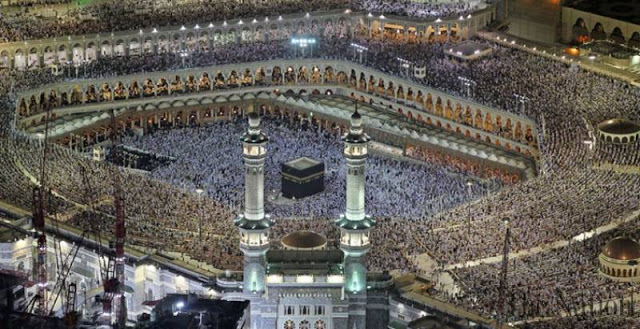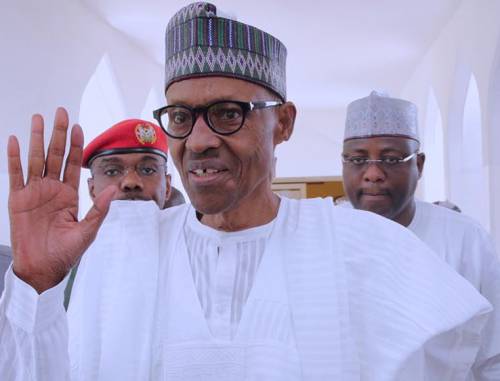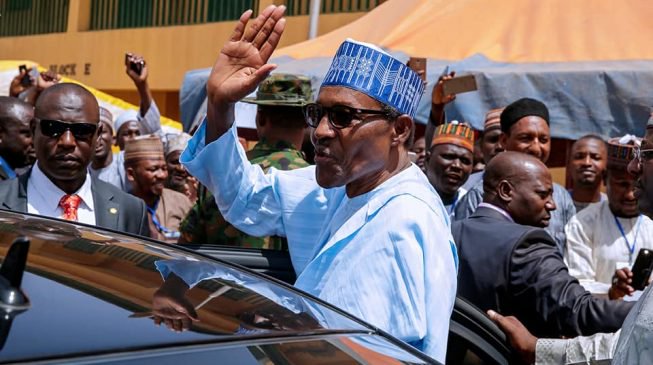In The Name Of Allah, The Most Beneficent, The Most Merciful
All thanks and praises are due to Allah, we seek His help and forgiveness. We seek refuge in Allah from the evil within ourselves and the consequences of our evil deeds. Whoever Allah guides will never be led astray, and whoever Allah leads astray will never find guidance. I bear witness that there is no god but Allah, He is alone without any partners, and I bear witness that Muhammad is His Servant and His Messenger.
“O you who have believed, fear Allah as He should be feared and do not die except as Muslims in submission to Him.” [Quran, 3:102]
“O mankind, fear your Lord, who created you from one soul and created from it its mate and dispersed from both of them many men and women. And fear Allah, through whom you ask one another, and the wombs. Verily, Allah is ever watching over you.” [Quran, 4:1]
“O you who have believed, fear Allah and speak words of appropriate justice. He will then amend for you your deeds and forgive your sins, and whoever obeys Allah and His Messenger has certainly attained a great attainment.” [Quran, 33:70 -71]
Verily, the most truthful speech is the Book of Allah, the best guidance is the guidance of Muhammad, and the worst affairs are newly invented matters (in the religion). Every newly invented matter is a religious innovation, and every religious innovation is misguidance, and every misguidance is in the Hellfire.
To proceeds:
Dear Brothers and Sisters! Allah the Almighty honoured man and created him with His own Hand and blew into him from His Spirit. Then, He made His angels prostrate to him and subjected to him all that is in the heavens and the earth – all from Him. Moreover, He made him a successor on earth and bestowed talents and blessings upon him so that he can dominate the earth. He preferred him over all beasts and animals. Man cannot fulfill his goals unless he takes his rights in full. At the forefront of these rights, which are guaranteed by Islam, is the right to life – an inviolable right. Allah, the Exalted, says:
“And do not kill the soul which Allah has forbidden [to be killed] except by [legal] right.” [Quran, 6:151]
The right that permits the taking of souls was explained by the Prophet when he reportedly said:
“It is not permissible to spill the blood of a Muslim except in three cases: the married person who commits adultery, a life for a life, and the one who forsakes his religion and separates from the group.” [Muslim]
Out of its great concern for the protection of life, Islam threatens those who deem it permissible to kill with the severest punishment. In the Quran, Allah the Almighty says:
“But whoever kills a believer (or any innocent person) intentionally – his recompense is Hell, wherein he will abide eternally, and Allah has become angry with him and has cursed him and has prepared for him a great punishment.” [Quran, 4:93]
Moreover, it is clearly indicated in authentic Hadiths that killing a believer (or any innocent person) is one of the gravest sins. In a Hadith via Al-Bara’ Ibn Azib, may Allah be pleased with him, the Prophet said:
“If this world were to be destroyed, that would be less significant before Allah than the unlawful killing of a believer.” [Ibn Majah]
In another Hadith on the authority of Abu Sa‘id Al-Khudri, may Allah be pleased with him, the Prophet said:
“If the inhabitants of the heavens and the inhabitants of the earth all took part in shedding the blood of a believer, then Allah would cast them (all) in the Fire.” [At-Tirmithi]
Also, Ibn Umar, may Allah be pleased with him, narrated that the Prophet said:
“He who helps in (the spilling of) the blood of a Muslim, even with half a word, it will be written between his eyes on the Day of Judgment ‘Desperate of the mercy of Allah’.” [Al-Bayhaqi]
The Noble Quran prohibits us from killing our children out of fear of poverty and starvation. A Quranic verse reads:
“And do not kill your children for fear of poverty. We provide for them and for you. Indeed, their killing is ever a great sin.” [Quran, 17:31]
In another verse that speaks about a common practice among the Arabs during the pre-Islamic era of ignorance (Jahiliyyah), Allah, The Exalted, says:
“And when the girl [who was] buried alive is asked for what sin she was killed.” [Quran, 81:8-9]
This equally applies to the non-Muslims who live under the rule of a Muslim nation and enter into an agreement of protection with the Muslim leader – be they Jews or Christians. Abdullah Ibn Amr Ibn Al-As, may Allah be pleased with him, narrated that the Prophet said:
“Whoever killed a mu‘ahid (a person who is granted the pledge of protection by the Muslims) shall not smell the fragrance of Paradise, even though its fragrance can be smelt at a distance of forty years.” [Al-Bukhari]
Moreover, Allah, the Exalted, says:
“So if they remove themselves from you and do not fight you (again) and offer you peace, then Allah has not made for you a cause [for fighting] against them.” [Quran, 4:90]
This also applies to the one who commits suicide. Allah Almighty warns us against this, saying:
“And do not kill yourselves [or one another]. Indeed, Allah is to you ever Merciful.” [Quran, 4:29]
Abu Hurayrah, may Allah be pleased with him, narrated that the Prophet said:
“He who commits suicide by throttling shall keep on throttling himself in the Hellfire, and he who commits suicide by stabbing himself shall keep on stabbing himself in Hellfire.” [Al-Bukhari]
Hence, Allah Almighty legislated retribution and the killing of the intentional killer as a revenge from him and purification for society. Allah Almighty says:
“And there is for you in legal retribution [saving of] life, O you [people] of understanding, that you may become righteous.” [Quran, 2:179]
Even in manslaughter, Allah, the Exalted, does not exempt the killer from liability. Rather, He made it obligatory upon him to set a slave free and give ransom. If he cannot free a slave, he is required to fast for two consecutive months. Ransom for manslaughter is ordained by Islam so that people do not take life lightly and to inspire respect for the human soul.
Undoubtedly, the first thing about which the servants will render account on the Day of Judgment is murder. The erudite Andalusian scholar Imam Ibn Hazm said:
“I do not know of any sin, after polytheism (shirk), greater than the killing of a believer without right or abandoning prayer.”
The Prophet is reported to have said:
“Every sin may be forgiven by Allah except a man who dies as a disbeliever or a man who kills his brother.” [An-Nasa’i]
In another Hadith, he said:
“A servant continues to guard his faith (and thus hopes for the mercy of Allah) so long as he does not shed blood unjustly.” [Al-Bukhari and Muslim]
This is Islam. It came to preserve the human soul and the blood of Muslims and all innocent persons, lest people may take Muslim blood lightly.
* All Human Life Is Sacred In Islam
Respected Servants of Allah! Islam guarantees the right of life for every human being, whether they are Muslims or non-Muslims. Every human life is sacred in Islam and every person has been granted God-given fundamental and universal rights at the time of their birth. Allah the Most High said:
“We have certainly dignified the children of Adam and carried them on the land and sea and provided for them of the good things and preferred them over much of what We have created with definite preference.” [Quran, 17:70]
The dignity that Allah bestowed upon humankind at the time of creation was the blessing of a sacred inviolability which manifests itself as the rights to life, freedom, and property. The right to life has been recognized as the first and most important universal right derived from the Shari’ah and classical Islamic law.
During his final Sermon at the Hajj pilgrimage, the Prophet declared that the lives, property, and honour of all people are sacred in the same sense that Makkah and Islam’s religious symbols are sacred.
Abdullah Ibn Mas’ud reported that: The Messenger of Allah, peace and blessings be upon him, said during his farewell Sermon:
“Which month do you believe has the greatest sanctity? They said, “This month of ours, Dhul Hijjah.” The Prophet said: Which city do you believe has the greatest sanctity? They said, “This city of ours, Makkah.” The Prophet said: Which day do you believe has the greatest sanctity? They said, “This day of ours, Arafah.” The Prophet said: Verily, Allah the Exalted has made sacred your lives, your wealth, and your honour except by right of justice, just as your day, your city, and your month are sacred. Have I not delivered the message? Then the Prophet said: Beware! Do not return to unbelief after me by striking the necks of each other.” [Al-Bukhari]
Just as Muslims honour and respect the Hajj pilgrimage and all of Islam’s symbols, Muslims have been commanded to respect the lives and properties of other people in the same way. The Prophet even warned us that reverting to the violent tribalism of pre-Islamic ignorance (Jahiliyyah) was tantamount to disbelief in Allah and His Messenger.
In fact, respect for the sacred inviolability of humankind is part of the very definition of being a Muslim, meaning: “THE ONE FROM WHOM PEOPLE ARE SAFE.”
Abu Hurairah reported that: The Messenger of Allah, peace and blessings be upon him, said:
“The Muslim is the one from whose tongue and hand the people are safe, and the believer is the one people trust with their lives and wealth.” [An-Nasa’i]
Muslim jurists (Fuqaha) from the time of Abu Hanifah and beyond recognized that human beings are granted universal rights by default, simply by virtue of being a human being, the most important of which is the right to life. Imam As-Sarakhsi said:
“As Allah the Exalted created humanity to carry His trusts, He dignified them with reason and sacred inviolability in order to be responsible for the duties and rights of Allah placed over them. Then He granted them sanctity, freedom, and property rights for them to continue carrying out their trusts. Hence, this freedom, sanctity, and right of property are granted to a person at the time they are born. Those capable of discernment and those who are not are equal in this regard, so likewise sacred inviolability is established at birth whether they are of sound mind or not.” [See Usul As-Sarakhsi vol. 2 page 334]
In this respect, there is no difference between the life of a Muslim and a non-Muslim since the lives of both are to be protected as a sacred trust. Someone who kills another person is guilty of killing all of humanity whether the victim is a Muslim or not. Allah the Almighty said:
“Thus, We decreed upon the children of Israel that whoever kills a soul unless as legal punishment for murder or for corruption in the land, it is as if he had slain mankind entirely. And whoever saves one soul, it is as if he had saved mankind entirely.” [Quran, 5:32]
The great Mufassir, Imam Ibn Kathir comments on this verse, saying:
“The verse means that whoever kills a soul without a just cause such as legal punishment for murder or for causing corruption on earth, then it will be as if he has killed all people because there is no difference between one life and another.” [See the Tafsir of Imam Ibn Kathir of Quran, 5:32]
Dear Brothers and Sisters! In this verse, Allah the Almighty made no distinction between the life of a Muslim and a non-Muslim, a believer or an unbeliever. Life may only be taken as a means of self-defense in a just and legitimate war, as legal punishment to deter the most dangerous criminals, or to prevent corruption (fasad) which, in the Islamic context, is not merely ordinary sin but rather the corruption of tyrants like Pharaoh (Fir’awn) who committed mass murder and enslavement of entire peoples (Quran, 28:4).
Even when legal retaliation against criminal activity is justified, Islam encourages us to be merciful and forgiving as long as society is protected from future crimes. The family of the murder victim has the right to request full capital punishment on the perpetrator, or to offer a pardon in the form of a reduced sentence such as monetary compensation. Further retaliation beyond what is legally justified is considered sinful transgression, hence, excessive or collective punishment by association is strictly forbidden. Allah the Most High said:
“Whoever pardons a capital crime from his brother, then it should be followed by good conduct and payment to him in the best manner. This is an alleviation from your Lord and a mercy, but whoever transgresses after that will have a painful punishment.” [Quran, 2:178]
And Allah the Almighty said:
“Do not kill the soul which Allah has made sacred except by right of justice. Whoever is killed unjustly, We have given his heir authority, but let him not exceed the limits in taking life.” [Quran, 17:33]
Islam has placed great emphasis on the value of all life and has issued clear warnings against unjustified violence. For this reason, the true believers are the most reluctant to take life in any situation, doing so only when it is absolutely necessary for the safety of others.
Abdullah Ibn Mas’ud reported that: The Messenger of Allah, peace and blessings be upon him, said:
“The most restrained of the people in killing are the people of faith.” [Musnad of Imam Ahmad]
Nevertheless, some Muslim jurists failed to recognize the universal sanctity of human life. They postulated, incorrectly, that the life of a non-Muslim was not sacred by default and was only made sacred due to a peace treaty with the Muslims. They formulated this legal principle within the rough environment of the ancient world in which the only choice nations had was to conquer others or be conquered themselves. There was little precedent for peaceful coexistence at the time, as these jurists correctly assumed that most neighbouring empires harboured hostile intentions, so they developed their law schools within the de facto reality of their era. It would have been very difficult for them to imagine the world otherwise and pointless to develop a legal framework for an ideal situation that did not exist. This is not to say that they viewed long-term peaceful relations as undesirable, but rather they viewed it as unrealistic.
Today, some Muslim terrorist groups cite this obsolete legal principle in their propaganda, quoting the writings of those classical jurists without any historical or anthropological context, to justify attacks on civilians, women, and children. They argue that non-Muslim life is not sacred in principle and that they have no obligation to recognize the interconnected web of peace treaties and international agreements put forth by so-called “infidel” Muslim leaders.
Such erroneous thinking betrays the farewell address of the Prophet in which he admonished all Muslims in every place, and in forceful terms, that life is sacred and unjust violence is itself infidelity.
Moreover, a specific incident occurred in the life of the Prophet which explicitly proves that he considered all life sacred by default.
Al-Miswar Ibn Makhramah reported that:
“During the period of ignorance (Jahiliyyah), Al-Mughirah accompanied some people, killed them, and took their wealth and then he later embraced Islam. The Messenger of Allah, peace and blessings be upon him, said: “As for your Islam, we have accepted it. As for the property, it is the wealth of treachery and we have no need for it.” [Sunan Abu Dawud]
Al-Mughirah attacked, robbed, and killed some people in the time of pre-Islamic ignorance (Jahiliyyah), as was not uncommon in the Bedouin culture at the time, and he later converted to Islam. Al-Mughirah was pardoned for his crime only because converting to Islam expiates previous sins; he was given another chance in Islam to redeem himself. The wealth, on the other hand, was rejected by the Prophet due to the lawless method by which it was acquired, demonstrating that the life and property of the unnamed victim, who was most likely an idolater (non-Muslim), was sacred and inviolable regardless of their religion.
The truth is that relaxing what should be the cautiously restrained nature of the believer regarding killing, even when apparently justified by precedents in the Islamic law tradition, causes immense danger to the integrity of our religious standing.
Ibn Umar reported that: The Messenger of Allah, peace and blessings be upon him, said:
“The believer continues to be safe in his religion as long as he does not unlawfully spill blood.” [Al-Bukhari]
The Muslim is largely protected from severe punishment in the Hellfire if he or she avoids the major sins, but the sin of murder is so incredibly heinous that it can nearly expel someone from the religion altogether. If we fear Allah with the reverence due to Him, these admonitions should be more than enough to make us doubt the piety of those who kill people in the name of Islam or simply because they belong to another religion, nation, tribe, race or region.
Respected Brothers and Sisters! I ask Allah to assist us in living by the Quran and Sunnah. I pray that He lets us recognise the truth for what it is and helps us to follow it, and that He lets us see falsehood for what it is and helps us to avoid it.
O Allah! Guide us and protect us from the causes of ignorance and destruction! Save us from the defects of ourselves! Cause the last of our deeds to be the best and most righteous! And forgive all of us.
Dear Brothers and Sisters! Anything good I have said in my today’s Khutbah (Sermon) is from Allah the Almighty, and any mistakes are my own and we seek refuge in Allah from giving wrong advice and from all forms of calamities and fitnah. And I ask Allah’s forgiveness if I stepped beyond bounds in anything I said or I do.
May Allah be praised; and may the peace and blessings of Allah be upon His Messenger Muhammad and upon his family and Companions.
With this I conclude my Khutbah (Sermon) and ask Allah, the Almighty and the Sublime, to forgive all of our sins. So seek his forgiveness, He is all forgiving and Most Merciful.
This Jumu’ah Khutbah (Friday Sermon) was prepared for delivery today, Friday, Rajab 26, 1439 AH (April 13, 2018), by Imam Murtadha Muhammad Gusau,isi the Chief Imam of Nagazi-Uvete Jumu’ah and late Alhaji Abdurrahman Okene’s Mosques, Okene Kogi State, Nigeria. He can be reached via: [email protected] or +2348038289761.





